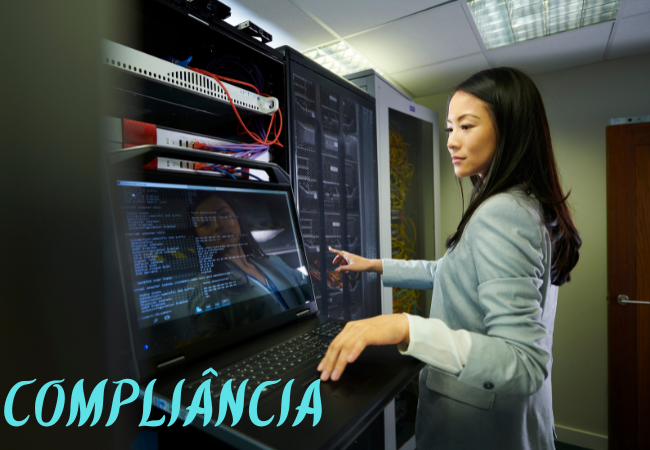Compliância is a critical component of current commercial enterprise and governance, encompassing adherence to legal guidelines, guidelines, requirements, and inner guidelines. In today’s globalized and pretty regulated surroundings, businesses across various sectors face mounting pressure to ensure compliance with a myriad of requirements. This article explores the multifaceted nature of compliance, delving into its definition, significance, challenges, and first-class practices for implementation.
Understanding Compliância
Compliância refers to the act of conforming to mounted regulations, rules, requirements, or guidelines. It contains an extensive range of sports aimed toward ensuring that corporations function inside criminal and ethical limitations. Key components of compliance include understanding relevant laws and policies, implementing rules and processes to meet requirements, tracking adherence, and addressing non-compliance successfully. Compliance may be categorized into regulatory compliance, company compliance, and enterprise-particular compliance, every with its own set of demanding situations and issues.
Regulatory Compliância
Regulatory Compliância entails adherence to laws, regulations, and regulations set forth employing governmental government or regulatory bodies. Examples include facts about safety rules like the GDPR, economic regulations along with the Sarbanes-Oxley Act, and healthcare policies like HIPAA. Achieving regulatory compliance calls for companies to live abreast of evolving guidelines, interpret their implications accurately, and enforce measures to ensure compliance. Challenges in keeping regulatory compliance consist of complexity, ambiguity, and the need for continuous updates to evolve to converting regulatory landscapes.
Corporate Compliância
Corporate Compliância focuses on internal rules, tactics, and ethical requirements designed to promote lawful and ethical conduct inside businesses. It encompasses areas together with anti-corruption, records privacy, place of job safety, and environmental stewardship. Building a tradition of compliance is crucial for fostering moral behavior amongst employees and mitigating risks related to non-compliance. Effective corporate compliance packages contain a clean communique of expectations, sturdy education tasks, and mechanisms for reporting and addressing violations.
Industry-Specific Compliância
Different industries have specific Compliância necessities dictated by the nature of their operations, regulatory surroundings, and stakeholder expectations. For example, healthcare groups must follow patient privacy legal guidelines, economic institutions face stringent guidelines to save money laundering and fraud, and era corporations grapple with facts protection and intellectual belongings worries. Industry-particular compliance demands tailored tactics that align with zone-precise guidelines, requirements, and nice practices.
CompliânciaTechnology and Tools
Technology performs a pivotal function in streamlining Compliância control methods, enhancing performance, and lowering compliance-associated dangers. Compliância software programs and equipment provide functionalities along with regulatory tracking, hazard assessment, report management, and audit trail advent. While era-driven solutions provide several advantages, along with automation and actual-time tracking capabilities, companies need to cautiously pick and implement suitable technologies to cope with their particular compliance wishes and challenges.
Challenges and Risks in Compliância
Despite the significance of compliance, organizations face various demanding situations in preserving compliance successfully. These demanding situations may additionally consist of useful resource constraints, complexity of regulatory necessities, organizational silos, and cultural limitations to compliance. Non-compliance can result in extreme results, which include financial penalties, criminal liabilities, reputational damage, and lack of stakeholder acceptance as true with. Proactively figuring out and addressing compliance dangers is important for shielding organizational integrity and sustainability.
Developing an Effective Compliância Strategy
Developing a powerful Compliância approach involves a scientific method to assessing compliance needs, defining objectives, imposing policies and tactics, and tracking overall performance. Organizations ought to set up a compliance framework that outlines roles, duties, methods, and controls to make certain constant and comprehensive compliance efforts. Continuous monitoring, periodic exams, and everyday audits are important for evaluating the effectiveness of compliance initiatives and identifying areas for improvement.
Training and Education for Compliância
Employee training and schooling are indispensable components of successful compliance applications. Training initiatives should aim to raise the focus of compliance requirements, teach employees on applicable legal guidelines, guidelines, and rules, and instill a tradition of ethical behavior. Interactive schooling methods, together with workshops, simulations, and case studies, can beautify engagement and retention of compliance information. Ongoing education and reinforcement efforts are important to maintain employees’ knowledge approximately evolving compliance requirements and expectancies.
Ethical Considerations in Compliância
Ethical issues are inherent in compliance control, as businesses have to navigate complex moral dilemmas and make selections that uphold ethical principles and even ensure compliance with prison necessities. Balancing felony duties with moral standards can also require companies to go beyond mere compliance and adopt practices that sell integrity, transparency, and social responsibility. Ethical conduct needs to be ingrained in organizational subculture and contemplated in compliance policies, approaches, and selection-making tactics.
Future Trends in Compliância
The panorama of compliance is continuously evolving in reaction to technological advancements, regulatory tendencies, and transferring societal expectations. Emerging technology which includes artificial intelligence, blockchain, and facts analytics is poised to revolutionize compliance control by way of supplying modern answers for danger identification, monitoring, and reporting. Regulatory developments, together with improved attention on environmental sustainability and company governance, will shape the future direction of compliance practices. Organizations that embody technology-pushed, proactive procedures to compliance may be better positioned to evolve to convert regulatory requirements and mitigate compliance-related dangers successfully.
Conclusion
Compliância is a complex and multifaceted subject that requires organizations to navigate a myriad of regulatory necessities, moral concerns, and operational challenges. By informing the nature of compliance, imposing effective techniques, leveraging era, and selling moral behavior, organizations can make certain adherence to criminal and moral requirements at the same time as safeguarding their popularity and sustainability in an increasingly regulated global. Embracing a proactive and holistic approach to compliance is important for attaining long-term achievement and resilience in present-day dynamic commercial enterprise surroundings.







